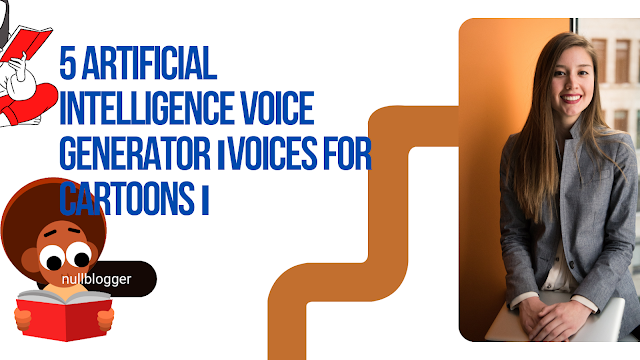Leonardo AI Image Prompt: "Create a realistic image of Bobbi Althoff in a professional podcasting setting, with modern studio equipment and a clear focus on her speaking into a microphon
Blog Post: The Impact of AI-Generated Content on Online Personalities – The Case of Bobbi Althoff
Introduction
Artificial Intelligence (AI) has revolutionized various industries, from healthcare to entertainment, and now, it is making waves in the digital content creation world. However, with its capabilities come some major ethical concerns, especially when it comes to digital manipulation and deepfake technology. One prominent case that highlights this issue is the recent controversy surrounding influencer and podcaster Bobbi Althoff. In early 2024, a deepfake video of Althoff circulated online, igniting discussions about the authenticity of digital content and the risks involved.
The Rise of AI-Generated Content
AI-generated content is not a new phenomenon, but it has become more accessible and sophisticated over time. From synthetic media to deepfake technology, AI allows creators to generate hyper-realistic videos, images, and even voices. While this technology can be used for good, such as creating art or improving accessibility, it also poses serious risks.
Deepfake videos, in particular, have gained notoriety due to their ability to manipulate or replicate the appearance of individuals in ways that are nearly impossible to distinguish from real content. In the case of Bobbi Althoff, a viral deepfake video of her surfaced, which quickly spread across social media platforms like X (formerly Twitter) and became a topic of public discussion.
Bobbi Althoff and the AI Video Scandal
Bobbi Althoff is a well-known podcast host and TikTok influencer, gaining popularity for her humorous and engaging content. In early 2024, an AI-generated video depicting her in an explicit scenario was uploaded online. This deepfake video quickly went viral, with many online users initially believing it to be real. The video spread across various platforms, raising concerns about the potential dangers of AI-generated content.
Bobbi Althoff addressed the situation on her social media, clarifying that the video was not real. In a tweet, she stated, "Sorry to disappoint you all, but the reason I'm trending is 100% not me & is definitely AI generated." Her response highlighted the growing issue of AI's role in creating content that is indistinguishable from reality, leading to concerns about the manipulation of public figures' images and reputations.
The Ethical Implications of Deepfake Technology
The incident involving Bobbi Althoff brings to light several ethical issues surrounding deepfake technology and AI-generated content. First and foremost, deepfakes raise questions about privacy and consent. In Althoff’s case, the video was created without her permission, showcasing how AI can be used to create harmful content that damages a person's reputation and invades their privacy.
Additionally, the spread of deepfakes can lead to the dissemination of false information, which can be especially harmful when used in political, social, or personal contexts. The viral nature of AI-generated videos makes it easy for them to be shared across social media platforms, leading to misinformation or defamation that can affect both the individual and the broader community.
The Role of Platforms and Regulation
In the wake of the Bobbi Althoff deepfake scandal, questions have emerged about the responsibility of social media platforms in managing AI-generated content. While platforms like X and Instagram have policies against explicit or misleading content, the rapid pace at which deepfakes can be created and shared often outpaces moderation efforts.
There is a growing call for stricter regulations regarding the use of deepfake technology, with many advocating for AI detection tools and stronger enforcement against the creation and spread of harmful content. Governments, tech companies, and content creators must collaborate to establish guidelines that protect individuals from the malicious use of AI-generated media while also promoting the responsible use of the technology.
The Future of AI-Generated Content
The incident with Bobbi Althoff is just one example of how AI-generated content can blur the lines between reality and fiction. As the technology continues to advance, it is likely that we will see more instances of deepfakes being used for both positive and negative purposes. Content creators will need to be vigilant in protecting their images and brands, while social media platforms must invest in better detection systems to prevent the spread of harmful deepfakes.
Moreover, individuals and society as a whole will need to adapt to this new digital landscape. As AI-generated content becomes more common, there will be a need for greater media literacy to help people differentiate between real and manipulated media. This will require education and awareness campaigns, as well as a collective effort to maintain the integrity of online spaces.
Conclusion
The controversy surrounding Bobbi Althoff’s deepfake video is a cautionary tale about the potential dangers of AI-generated content. While AI offers exciting opportunities for creativity and innovation, it also presents significant challenges in terms of privacy, authenticity, and ethics. As deepfake technology continues to evolve, it is crucial that we develop effective strategies to manage its impact and protect individuals from harm. The case of Bobbi Althoff serves as a reminder of the power and potential risks of AI, urging both creators and consumers to approach digital media with a critical eye.
Leonardo AI Image Prompt: "Create a realistic image of Bobbi Althoff in a professional podcasting setting, with modern studio equipment and a clear focus on her speaking into a microphone."




.png)



অর্ডিনারি আইটির নীতিমালা মেনে কমেন্ট করুন। প্রতিটি কমেন্ট রিভিউ করা হয়।
comment url